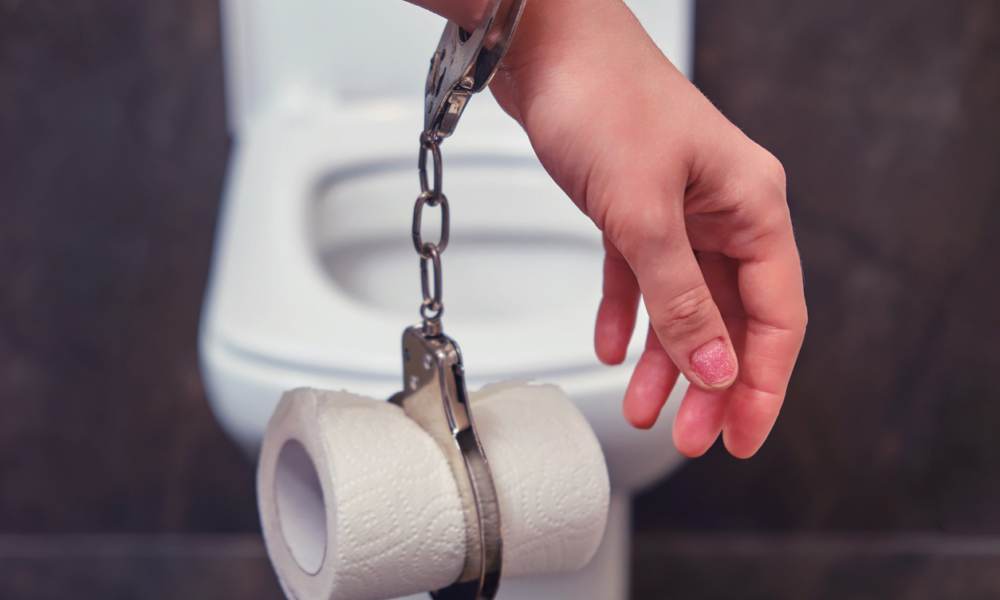
Could it be Chronic Constipation?
Are you plagued by uncomfortable bloating, or frequent trips to the loo that still leave you feeling unsatisfied? Your stomach might be telling you something – it could be chronic constipation! While most of us experience a bout of constipation now and again, when these occurrences become regular it may be time to talk to your healthcare provider.
Let’s take a look at what chronic constipation is, its potential effects on your health, and how it can be treated.
What is Chronic Constipation?
Chronic constipation can be a frustrating and uncomfortable condition that affects many people. But it is more than just a minor inconvenience. It can lead to serious health complications, especially if left untreated.
When stool sits in the colon for too long, it becomes hard and dry, making it difficult and sometimes painful to pass. The repeated straining and pressure can weaken the muscles and nerves in the pelvic area, leading to rectal prolapse - a serious condition in which part of the rectum protrudes from the anus. This can require surgery and a long recovery period. The bottom line is that chronic constipation should not be taken lightly.
Seeking medical treatment and making lifestyle changes like increasing fiber and water intake can help prevent these serious complications and improve your quality of life.
Causes of Chronic Constipation
There are several factors that can contribute to chronic constipation, including medications, diet, and lifestyle habits.
Medications like painkillers, antidepressants, and iron supplements can slow down the digestive system and lead to constipation. It is important to know that constipation caused by medication is a common problem, and suggestions can be made for changes to your medication, like recommending a stool softener, or providing other solutions to help ease your symptoms.
Consuming a diet lacking fiber or not drinking enough water can add to the problem. Fiber is an essential part of our daily needs and is responsible for aiding our digestive system, promoting fullness, and maintaining our overall health. If we do not consume enough fiber, our gut bacteria cannot digest food efficiently, leading to slower digestion and a decrease in bowel movements.
Sedentary lifestyles can also reduce gastrointestinal motility, leading to constipation. When we sit for long periods of time, our digestive system slows down, making it harder to move waste through our intestines. Additionally, being inactive can lead to weaker abdominal muscles which are essential in maintaining proper bowel movements.
Symptoms to look out for that might indicate chronic constipation
Chronic constipation occurs when bowel movements become infrequent and difficult to pass, accompanied by bloating, straining, and discomfort. If left untreated, chronic constipation can lead to serious health problems such as hemorrhoids, anal fissures, and rectal prolapse.
Therefore, it's important to know the symptoms to look out for, such as fewer than three bowel movements per week, hard and lumpy stools, feeling like you can't completely empty your bowels, and abdominal pain and cramping. If you experience any of these symptoms, it's crucial to consult a healthcare professional who can evaluate your condition, determine the underlying causes, and suggest appropriate treatments to alleviate your discomfort and improve your overall health.
Treatment options available for managing chronic constipation
As individuals age, the likelihood of experiencing chronic constipation increases. This condition can impact one's daily life and lead to discomfort and frustration. Fortunately, there are several effective treatment options available for managing chronic constipation. Medical professionals may recommend lifestyle changes such as increasing fiber intake, staying hydrated, and exercising regularly.
In addition, over-the-counter medications, laxatives, and prescription drugs may be suggested to alleviate symptoms. It is important to discuss treatment options with a healthcare provider as they can tailor recommendations to fit an individual's specific needs and medical history. Understanding and addressing chronic constipation can greatly improve one's quality of life.
Lifestyle tips on how to reduce the risk of getting constipated
Maintaining a healthy lifestyle is essential to reducing the risk of getting constipated. A diet high in fiber and water consumption is critical. Incorporating fresh fruits, whole grains, and vegetables is an excellent way to increase your fiber intake.
Additionally, regularly exercising can help stimulate the bowel muscles, promoting more regular bowel movements. It's also essential to create a regular bathroom routine and avoid holding in bowel movements, as this can lead to a buildup of stool in the colon.
Taking care of your digestive system can have long lasting benefits on your overall health and well-being. If you do experience chronic constipation, it's vital to speak to your healthcare provider to address any underlying issues and determine the best course of action. Remember, preventative measures are key to living a happy and healthy life.
If the symptoms persist or worsen please contact your Gastroenterologist. They specialize in the digestive system and can help with chronic constipation solutions. We encourage you to contact us and set up an appointment to help with constipation before something gets worse.